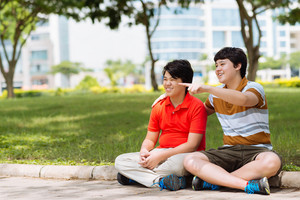There are many different types of acne, and many different treatments available. This article will discuss some of the most common types of acne and their treatments.
Cystic Acne
Cystic acne is one of the more severe forms of acne, and can often be difficult to treat. Cystic acne is characterized by large blackheads that may become filled with pus and blood. It is also often accompanied by redness and swelling. Cystic acne is caused by clogged pores, which leads to excess oil production and bacteria buildup.
Treatments for Cystic Acne
If your cystic acne is not treated properly, it can become quite serious. If you notice any of the following symptoms, consult a dermatologist immediately:
o Redness and swelling
o Pus or blood in the blackhead
o Itching or burning sensation
o Pain when opening or closing eyes
o Headaches
o Swelling of the eyelids
o Difficulty breathing
o Fever
o Sudden weight loss
o Swollen lymph nodes
o Bleeding from gums
o Unusual bleeding or bruising
Rosacea
Rosacea is a skin condition that affects mostly women, but can affect men as well. Rosacea is characterized by redness, flushing, and inflammation of the face. There are two types of rosacea: erythematotelangiectatic rosacea, which is characterized by redness and flushing of the face, and papulopustular rosacea, which is accompanied by pustules and pimples. Rosacea is usually chronic and can last for years. The exact cause of rosacea is unknown, but it is believed to be due to an overactive immune system.
Treatments For Rosacea
The best way to treat rosacea is to reduce stress levels and avoid triggers that may cause inflammation. These include:
o Exposure to cold air
o Hot baths or showers
o Sun exposure
o Alcohol consumption
o Smoking
o Certain foods such as spicy foods
o Certain medications such as aspirin and ibuprofen
Acne Vulgaris
Acne vulgaris is the most common type of acne, and is caused by blocked pores and bacteria buildup. Acne vulgaris can be very painful, and can sometimes lead to scarring. There are many different types of acne vulgaris, including:
o Acne Comedonica
o Acne Facialis
o Acne Pilaris
o Acne Medicodermica
o Acne Papulosa
o Acne Pustulosa
o Acnes Nodularis
o Acne Vulgaris
Treatments For Acne Vulgaris
Acne vulgaris can be treated with several different methods. In mild cases, acne vulgaris may be treated with topical medication. However, if the condition becomes severe, oral antibiotics may be prescribed. The best way to treat acne vulgaris is to maintain a healthy diet and avoid stress.
Adult Acne
Many adults suffer from acne, especially those who have had acne since childhood. Adult acne is often caused by hormonal changes, and is much less severe than acne that occurs during adolescence.

Treatments
f your acne is not treated properly, adult acne can be very serious. If you notice any symptoms, see a dermatologist immediately:
- o Redness and swelling of the face
- o Pus or blood
- o Itching or burning sensations
- o Pain when opening or shutting eyes
- o Swelling of the eye lids
- o Difficulty breathing
- o Sudden weight loss

[…] skin care industry has grown by leaps and bounds over the past few years. This has made it possible for many […]
[…] stressed out, then it’s important that you learn how to relieve stress. Stress can cause your body to produce more hormones, which can cause your body to produce even more […]
[…] so that you can determine which method will work best for you. If you want to know how to treat acne, here are some things that you should […]